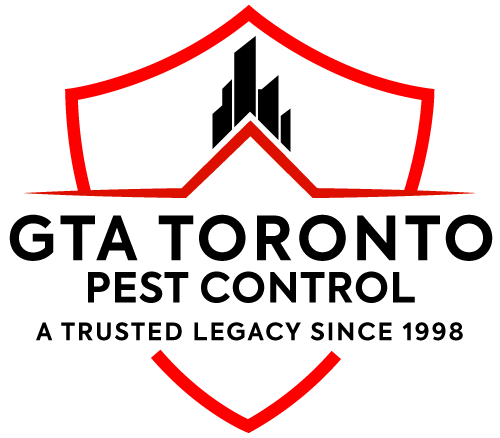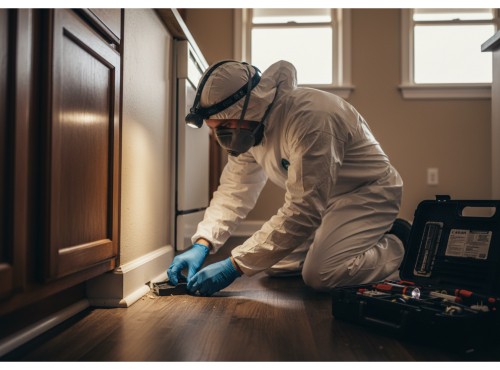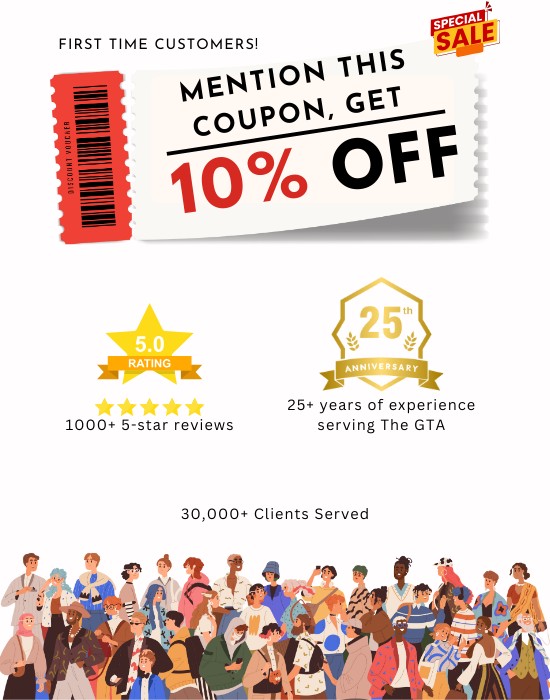Professional Standards and Local Expertise
The most reputable pest management firms in Toronto combine regulatory compliance with local experience. Every certified company maintains an active Structural Applicator License under Ontario’s Pesticides Act and trains technicians to meet WHMIS and Health Canada PCP safety standards.
Experienced PMPs understand how Toronto’s architectural diversity affects rodent behavior. Heritage homes in Roncesvalles feature open joists and unfinished basements, while modern condominiums near Bay Street and King Street rely on complex HVAC systems that can serve as rodent conduits. Tailoring control measures to these structural differences is essential for successful eradication.
Field technicians adhere to strict Restricted Entry Interval (REI) protocols following pesticide applications. Each treatment concludes with a post-treatment report outlining products used, target species, observed activity, and follow-up recommendations. These records establish accountability and maintain transparency for property owners.
Most leading firms are affiliated with professional organizations such as the Canadian Pest Management Association (CPMA), National Pest Management Association (NPMA), and the Structural Pest Management Association of Ontario (SPMAO). Membership ensures adherence to national standards of ethical service, ongoing technician training, and compliance with Ministry of Natural Resources and Forestry (MNRF) wildlife handling regulations.
Through a combination of scientific methodology, regulatory discipline, and local understanding, pest control professionals deliver results that protect both public health and Toronto’s complex urban ecosystem. Their approach emphasizes safety, documentation, and preventative maintenance. This is to ensure that each property, from downtown cafés to suburban homes, remains secure against rodent intrusion.
The Importance of Qualified Professionals
Selecting a reliable pest management company in Toronto involves more than comparing price quotes or scheduling convenience. Modern urban infestations require trained specialists capable of handling multi-species environments, particularly where commensal rodents coexist with other structural pests such as cockroaches or stored product insects.
Property owners, facility managers, and food industry operators increasingly rely on licensed Pest Management Professionals (PMPs) to achieve consistent and safe outcomes. A qualified technician does more than apply control products. They assess environmental factors, interpret monitoring data, and implement long-term prevention strategies aligned with national standards.
This expectation of professional accountability has made mice exterminator toronto services a critical component of urban property maintenance. As Health Canada’s Pest Management Regulatory Agency (PMRA) emphasizes, all pesticide applications must follow product label instructions, comply with Restricted Entry Intervals (REI), and protect non-target species.
Professional Credentials and Licensing
Every legitimate pest control company in Ontario must hold a valid Structural Applicator License under the Ontario Pesticides Act. This license authorizes technicians to apply regulated rodenticides, insecticides, and other pest control products in residential and commercial environments.
In addition to licensing, reputable firms maintain WHMIS compliance and ensure all technicians receive annual safety training. Each pesticide used on-site must be accompanied by current Safety Data Sheets (SDS) and a clearly documented Health Canada PCP number. These records provide transparency during inspections or audits conducted by Toronto Public Health.
Industry leaders demonstrate audit readiness by maintaining detailed service logs, client reports, and corrective action plans. Each log includes pre-treatment findings, product usage data, and follow-up schedules. All of these are information essential for accountability and risk assessment.
Evaluating Customer Experience and Transparency
The Toronto market features a wide range of pest control providers, but long-term success depends on professional integrity and client education. Reputable companies emphasize documentation, communication, and measurable results.
Residents in mixed-use zones such as Queen Street and Bathurst frequently commend firms that provide detailed inspection reports and customized exclusion plans. Commercial clients along Yonge and King Streets often value prompt emergency response times combined with clear communication about safety protocols and REI requirements.
Customer reviews on verified platforms like Google Business and HomeStars often mention factors such as punctuality, technician professionalism, and visible improvements within two to three service cycles. Transparency in pricing and scope of work remains the cornerstone of client trust.
Engaging a trusted, locally established provider ensures prompt, compliant, and measurable results. For more information contact GTA Toronto Pest Control.
Environmental Safety and Sustainable Practices
Progressive pest management firms integrate environmentally conscious principles into their daily operations. Many have adopted biorational rodenticides, non-repellent formulations, and microencapsulated products (ME) that minimize exposure risks while maintaining efficacy.
Toronto companies increasingly follow the Integrated Pest Management (IPM) model, emphasizing habitat modification, mechanical trapping, and sanitation over chemical dependence. These strategies align with Health Canada’s sustainability directives and NPMA’s global pest management framework.
Educating clients about sanitation and structural maintenance reinforces prevention. Firms offering post-service sanitation reviews or exclusion inspections empower property owners to reduce long-term pest pressures. Common recommendations include cleaning grease buildup in food areas, sealing dry storage containers, and managing refuse disposal schedules.
Community Reputation and Industry Affiliations
Ethical pest management practices are strengthened by professional affiliations. Membership in organizations such as the Canadian Pest Management Association (CPMA), National Pest Management Association (NPMA), and Structural Pest Management Association of Ontario (SPMAO) demonstrates a company’s commitment to continuous education, technician certification, and adherence to humane control standards.
Affiliated firms maintain transparent operational procedures, including the humane handling of non-target wildlife in accordance with Ministry of Natural Resources and Forestry (MNRF) guidelines.
Local knowledge remains equally important. Technicians who operate throughout Toronto’s distinct neighborhoods, from Yorkville and the Distillery District to Leslieville and High Park, develop a nuanced understanding of how architecture, humidity, and human activity influence pest distribution. For example, older markets such as St. Lawrence and Kensington consistently record higher rodent pressure due to persistent food sources and structural vulnerabilities.
Checklist for Evaluating Pest Control Companies
When choosing a pest management service, clients can benefit from a standardized checklist that prioritizes licensing, transparency, and sustainable practices.
| Evaluation Criteria |
What to Look For |
Why It Matters |
| Licensing & Certification |
Valid Structural Applicator License, WHMIS compliance |
Legal authorization ensures safe pesticide use |
| Experience & Specialization |
Proven track record in rodent, insect, and wildlife management |
Demonstrates technical competence |
| Transparency |
Detailed inspection and treatment documentation |
Builds accountability and trust |
| Client Reviews |
Verified positive feedback on third-party platforms |
Reflects service reliability |
| Eco-Conscious Practices |
IPM implementation, biorational and non-repellent use |
Reduces environmental risk |
| Follow-Up Programs |
Scheduled monitoring and maintenance |
Ensures long-term prevention |
Companies that meet these benchmarks maintain higher client retention rates and stronger reputations within Toronto’s competitive pest management market.









